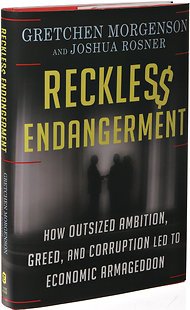Prince William Probes Builders
Anonymous Letter Cites Soil Dangers
Washington Post Staff WriterSunday, February 12, 2006; Page C01
Prince William County officials are investigating whether two major developers built houses on bad soil that could, over time, crack the foundations of the homes and possibly cause landslides.
At issue are Port Potomac, a 982-home development in Woodbridge built by Vienna-based KSI Services, and Four Seasons at Historic Virginia, an 800-home retirement community built by national developer K. Hovnanian. Both projects are in eastern Prince William, long known for its marine clay, a temperamental soil that shrinks and swells depending on moisture.
Both developers also used the same Woodbridge geotechnical engineering firm, Geotechnical Consulting and Testing, to test the soil and recommend how to proceed with construction.
The Board of County Supervisors met in closed session last week to discuss whether legal action should be taken if the county finds that the developers mishandled the soil.
Tom Williamson, vice president of KSI Services, and Mark Stemen, president of K. Hovnanian's DC Active Adult Division, said their companies followed proper procedures and are cooperating with the county's probe.
Emad Saadeh, president of the engineering firm, also said his company acted appropriately. "I can tell you unequivocally that the work is in full compliance with the county code," he said.
The county's probe was prompted by an anonymous letter circulated among residents at Four Seasons last year. The letter questions the mixing of lime and soil -- a process used by developers to chemically change expansive soils, such as marine clay, into good soil that is safe for building. Developers used to haul off expansive soils and replace them with better topsoil, but that is expensive. Now, builders more often choose to use the lime mixture.
The letter, signed by someone self-identified as a former employee of the "site developer," warns residents that it is a "questionable process."
Saadeh said he suspects the letter came from a competitor. He said his business can be cutthroat because geotechnical engineers are vying for jobs throughout the growing region.
A similar letter recently went to residents of the Fair Chase subdivision in the Fair Oaks area of Fairfax County. The development was built by Centex Homes and Beazer Homes, and the companies also used Geotechnical Consulting and Testing. Paul Lynch, director of residential inspections in Fairfax County, said the county explored the allegations in the fall and determined that they were unfounded.
Fairfax inspectors looked at whether the engineers had included high levels of organic material in the fill used to level the ground. Having too much organic matter -- leaves, twigs, wood chips -- in the soil also is risky, Lynch said. "Organics break down, and if you've got a house sitting on organics and breakdown is occurring, you're going to have voids, and then settlement occurs," he said.
Prince William has never had to deal with the issue until recently because developers had been unwilling to build on such land. But as people move farther from the District to find bigger, cheaper housing, the county has seen an explosion in its population and development. Builders are turning to previously untouched land blanketed by notoriously bad soil. The marine clay covers eastern Prince William, and another expansive soil called blackjack is more prevalent in the west. Although neighboring Loudoun and Fairfax counties have had policies on problem soils for several years, Prince William did not have one until January 2005. The county's rules -- which are unwritten -- say that developers using lime to simply dry suitable soils can do so without county approval. But if they use the lime to chemically change expansive soils -- such as marine clay -- the developers have to include the information in their reports to the county. In December, the county drafted a more stringent, written policy that requires developers to report any use of lime if there is expansive soil on the site, said Eric Mays, the county's building official. That draft is still being reviewed. Local developers said the county's lateness in regulating building on the clay has caused the confusion. They pointed out that using lime and marine clay together as a building surface is a common and long-standing method. Saadeh said the county will continue to struggle with those issues if it does not put several initiatives in place, including a geotechnical review board -- a panel that oversees such policies. Saadeh has been on a board in Fairfax since 1989. Mays said that the creation of a board is "on the table" but that the Public Works Department is concerned that it would result in "the private sector overseeing the private sector." Staff writer Alec MacGillis contributed to this report. http://www.washingtonpost.com/wp-dyn/content/article/2006/02/11/AR2006021101556.html
Marine clay, which is especially prevalent in soil closer to the Chesapeake Bay, can be "hard as a brick when dry or mushy as Play-Doh when wet," Lynch said. That means that if there's too much of it in the ground, "if it's next to your concrete wall, it will knock your wall down. It can lift your house up and down."




